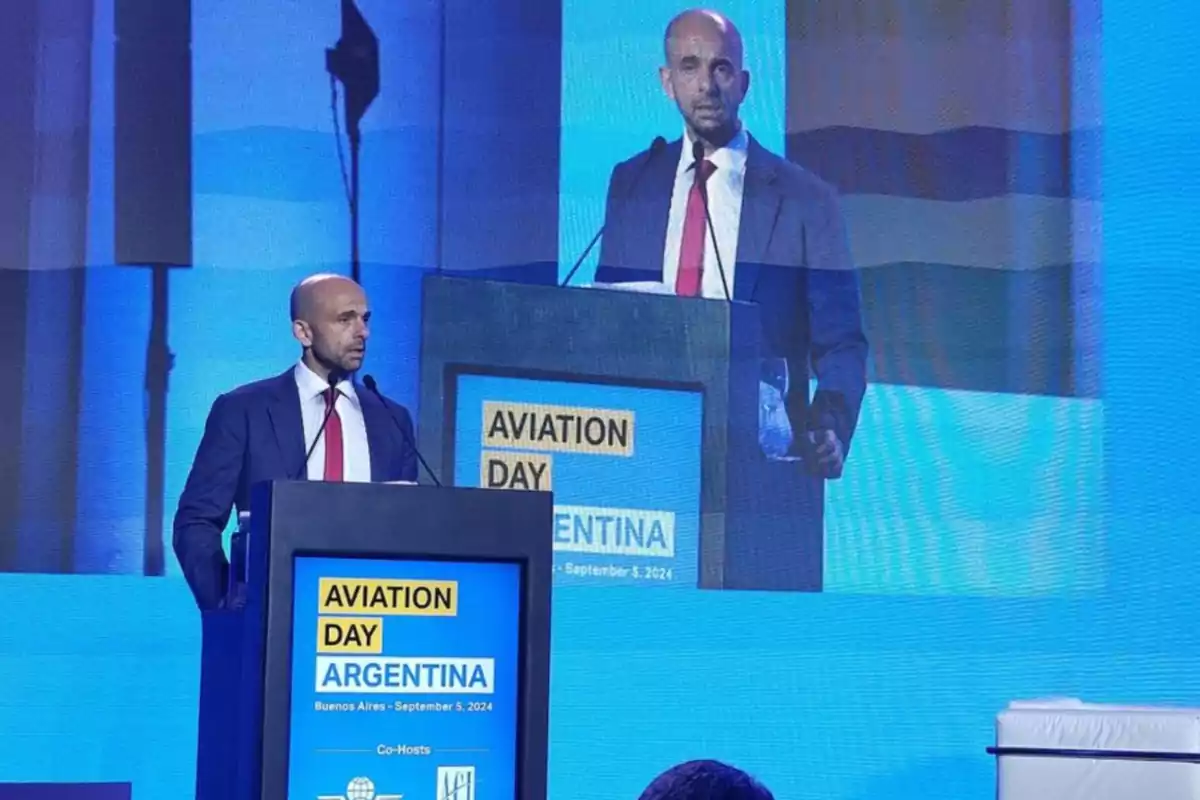
Mogetta Administration: Transportation was the country's second most deregulated sector
Under Frango Mogetta's leadership, Transport was one of the most transformed areas during the first year and a half of the administration
During the period of delegated powers, the Secretariat of Transportation added 53 deregulated regulations. This number positioned the area as the second most reformed sector in the entire national public administration. The figure was recognized by Sturzenegger's team as an example of technical and political efficiency.
Under the leadership of Franco Mogetta, the area advanced in long-term structural changes. His approach was clear: fewer obstacles, more freedom, and efficiency throughout the system. The measures included everything from regulatory frameworks to operational redesigns.
The management was first developed under the Ministry of Infrastructure, and then under the Ministry of Economy. The continuity of the direction, even with the change of ministry, shows the political and technical support for Mogetta's work. His name gained specific weight within the Cabinet.
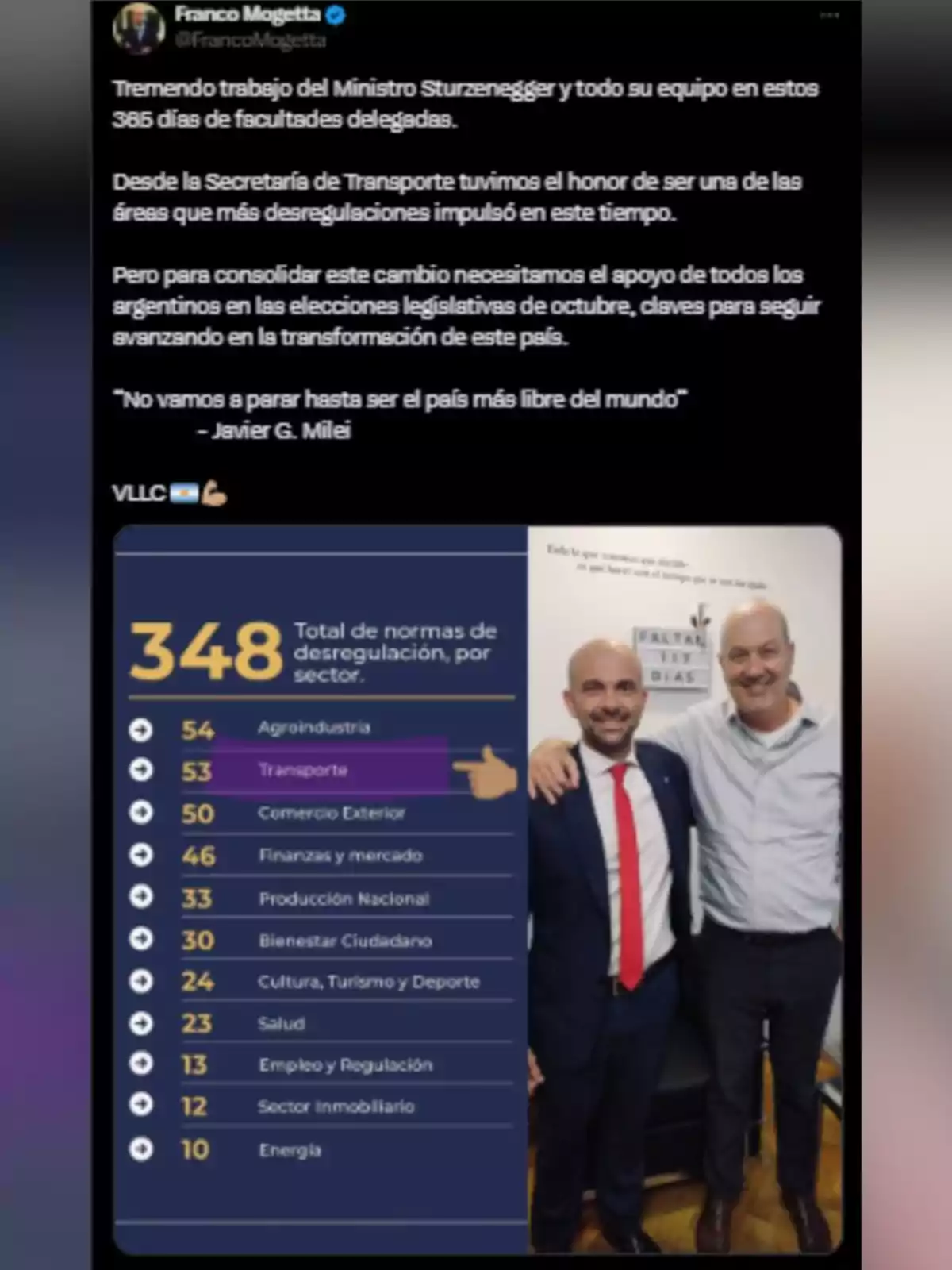
Open skies policy and more competition
One of the most notable milestones was the open skies policy. This decision allowed new airlines to enter the Argentine market, generating greater competition and better prices for users. The measure eliminated artificial barriers that limited connectivity.
Meanwhile, the exclusivity of the SUBE system was eliminated. This opened the door to proprietary technological developments in provinces and municipalities. It also meant more freedom for local governments to manage their own systems.
Another advancement was the transfer of bus lines to the Autonomous City of Buenos Aires. The transfer was part of the process of fiscal order and efficiency.
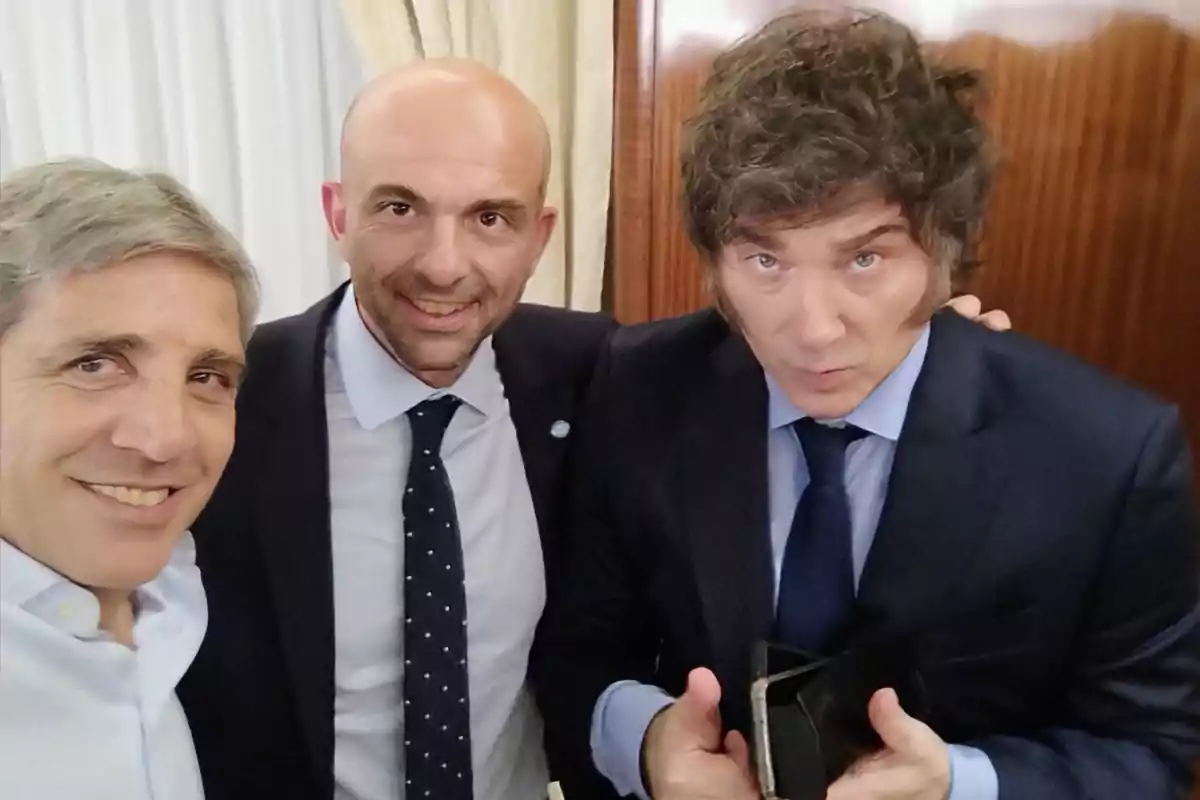
SUBE in the provinces and the end of the unequal system
For years, hundreds of localities in the provinces did not have the SUBE card. With Mogetta's arrival at Transportation, this situation began to be reversed. The expansion of the system allowed for greater traceability and equity in the distribution of subsidies.
The digitalization of the transportation system also accelerated. This made it possible to improve oversight, reduce superfluous expenses, and combat irregularities. Cities such as San Luis, Río Cuarto, Córdoba capital, and Catamarca incorporated technology that previously seemed distant.
The measure also impacted the transparency of the system. The unification of measurement and control tools facilitates monitoring by the national government.
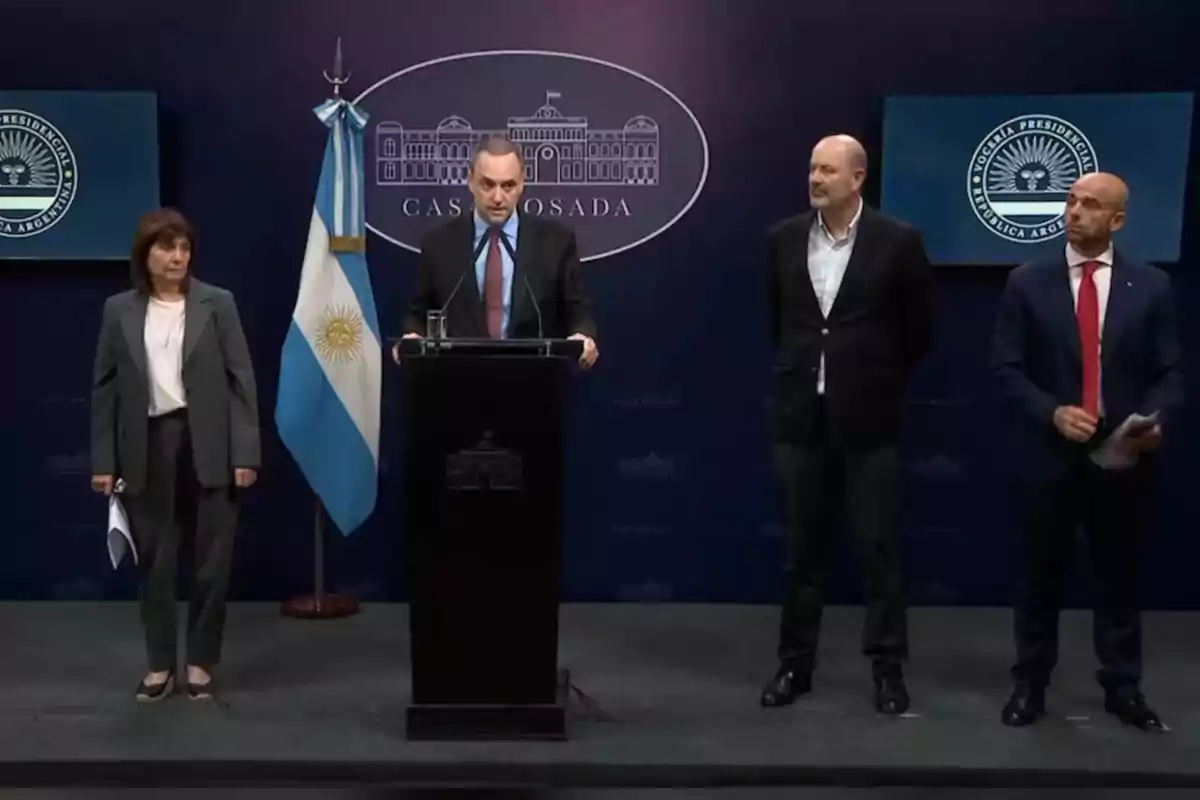
Fewer subsidies and more order in public spending
The administration promoted a gradual and orderly reduction of subsidies. The cut was not improvised, but designed to protect the user without rewarding inefficiency. This resulted in a fairer and more sustainable scheme.
The redesign of subsidies was one of the most complex technical points of the administration. Work was done with real data, performance evaluation, and dialogue with the provinces. Mogetta opted for a transparent and predictable scheme.
The Secretariat also worked on fares, routes, and inherited regulations. Many of them were outdated and replied to corporate logic. With deregulation, a more flexible and modern system was introduced.
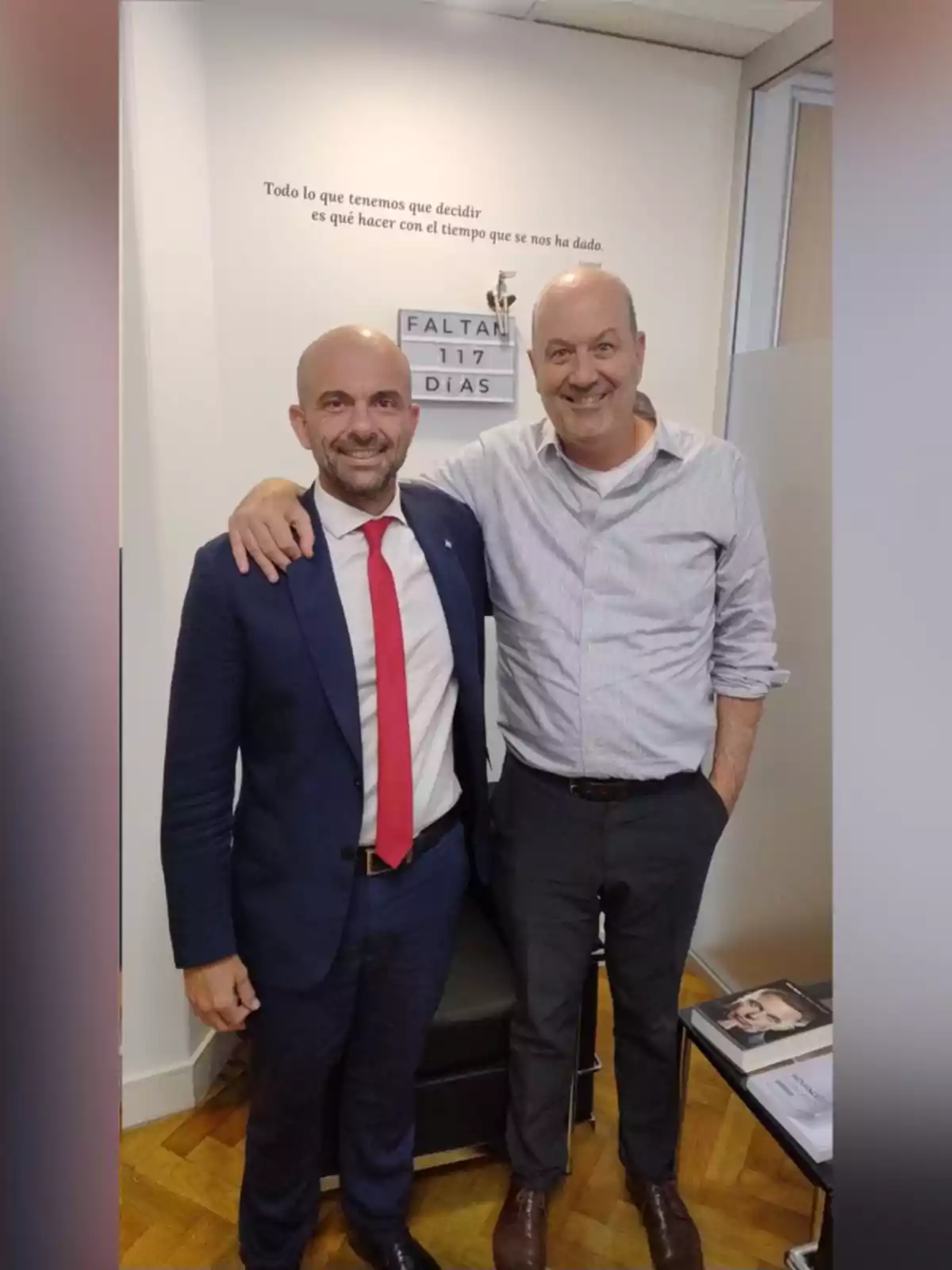
Political support and legislative projection
"This doesn't end here: we're not going to stop until we're the freest country in the world," said President Milei while supporting the progress in deregulation. Mogetta also left a clear message: without legislative support, it's difficult to deepen the reforms. For this reason, the October elections will be key to consolidating the direction.
From Transportation, they insist that the path is just beginning. "We've shown that change is possible, but we need society to support us", said the official. His administration is already emerging as one of the pillars of the change promised by La Libertad Avanza.
More posts: